So after a very long effort, I think I've finally come towards the end of my PCB board design. It's a two layer board with no ground or VCC plains (Re-routing is not an option) as I can't go though the grief process again.
My question is should I use a copper pour? Currently I have three possibilities which I am contemplating.
- Do not use a copper pour
- Implement a copper pour connected to nothing (no signal)
- Implement a copper pour connected to ground
A brief example is below.
Unpoured PCB
Poured PCB with cross pattern

What are your thoughts and why?
